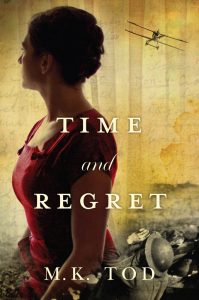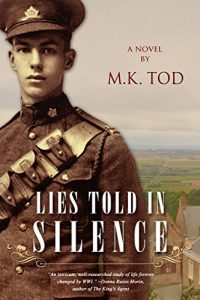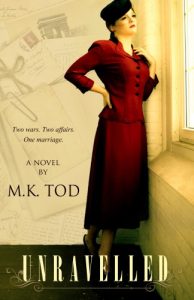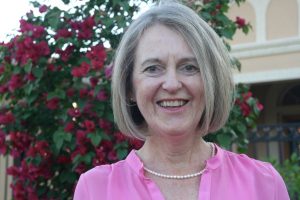 I met Mary Tod, pen name M.K. Tod, through Lake Union’s Facebook group, a supportive online author collective who welcomes readers into their ethereal coffee klatch. She writes historical fiction novels, blogs about history, and creates reader surveys. Her fourth novel “Paris in Ruins,” set in 1870s Paris during the Franco-Prussian war, should be coming out soon! I’m fortunate that she agreed to an interview on my little blogblogblog. I’ll let her take it away…..
I met Mary Tod, pen name M.K. Tod, through Lake Union’s Facebook group, a supportive online author collective who welcomes readers into their ethereal coffee klatch. She writes historical fiction novels, blogs about history, and creates reader surveys. Her fourth novel “Paris in Ruins,” set in 1870s Paris during the Franco-Prussian war, should be coming out soon! I’m fortunate that she agreed to an interview on my little blogblogblog. I’ll let her take it away…..
First of all, many thanks for inviting me onto your blog today, Lael. It’s a pleasure to spend time with you and your readers.
Tell me about your artistic / writing process, including schedule, environment, and inspirations.
 Writing is a second career for me. After thirty years in sales, technology and consulting, I went with my husband to Hong Kong for three years—a fascinating but dislocating experience. There I was, half way around the world with no job, no family, and no close friends. On a whim, I began researching my grandparents’ lives which ultimately led to my first novel, Unravelled. Thirteen years and almost five novels later, I find that the genesis of a story typically hits me unexpectedly. I jot the idea down and let it ruminate for a while, then bring it up one day with my husband—could be over dinner or while we’re out somewhere or even on a road trip. That conversation puts a little more flesh on the idea. From there, I develop a chapter outline. Once I have an outline that makes sense along with several characters fleshed out as to desires, circumstances, backstory, and conflicts, I begin chapter one.
Writing is a second career for me. After thirty years in sales, technology and consulting, I went with my husband to Hong Kong for three years—a fascinating but dislocating experience. There I was, half way around the world with no job, no family, and no close friends. On a whim, I began researching my grandparents’ lives which ultimately led to my first novel, Unravelled. Thirteen years and almost five novels later, I find that the genesis of a story typically hits me unexpectedly. I jot the idea down and let it ruminate for a while, then bring it up one day with my husband—could be over dinner or while we’re out somewhere or even on a road trip. That conversation puts a little more flesh on the idea. From there, I develop a chapter outline. Once I have an outline that makes sense along with several characters fleshed out as to desires, circumstances, backstory, and conflicts, I begin chapter one.
I work at my desk situated in an alcove in our bedroom almost every day, if not on the latest novel then on marketing, blogging, keeping up with social media, and connecting with readers. I love hearing from readers!
For me, just like most other authors I’ve met, writing is a passionate pursuit. Once I’m in the grip of a story, I get lost in that world with photos of people, places, maps, landscape, homes, clothing, and various articles and fiction and non-fiction books for inspiration. It can be a messy process and, of course, the first draft is only a beginning!
Why does historical fiction intrigue you? Describe your research—elaborate all you wish.
I’ve always loved historical fiction from my first exposure to the novels of authors like Mary Renault, Rosemary Sutcliff, and Jean Plaidy. There was something about travelling back in time that sparked my imagination and perhaps those stories helped with the transition from childhood to gawky teenager with hormones that had no home. Historical fiction has dominated my reading ever since. And then, while in Hong Kong researching the wars and depression my grandparents went through, I became obsessed with World War One.
What I now realize is how much research goes into well-crafted historical fiction. You need to intimately understand the world of your characters—the political, cultural, religious, social, and other beliefs and norms that governed life in whatever time period they live in. You need to appreciate how they thought, what they had for breakfast, the clothes they wore and how long it took to get dressed, the books they might have read, the restrictions governing their lives, how long it took to travel to the next town—the list is endless. To write stories set during WWI, I also had to immerse myself in the tools, techniques, and strategies of war and understand the horrific experience of trench warfare.
Research is a complex, time-consuming process and as a writer you can then select only a few details to paint the picture for your readers just like the deft brush strokes of a Chinese painting can suggest a flower or a mountain or the face of a woman. Over the years, I’ve found sources I return to again and again as well as techniques to make the research more effective.
For example, I love maps. Maps suggest worlds. Whether it’s a map depicting troop movements in northern France, or a map of a small village showing roads radiating out from a central square, or a map of 1871 Paris, each creates an imaginary world and the people within it. When I find a map from long ago, I’m like a kid in a candy store.
I think I spend almost as much time researching as I do writing. Fortunately, I love doing both!
Walk me through your publishing timeline—who does what when, and your responsibilities.
 I’ve taken two publishing paths—self-publishing and more traditional publishing. My husband and I published the first two novels, Unravelled and Lies Told in Silence. I worked with a freelance editor who also designed the covers for these novels. Then my husband did the page layout, figured out how to create MOBI and EPUB files for Amazon and other e-book retailers, and worked with a printer to create paperback versions. My role was marketing, which included virtual book tours, all sorts of guest posts, lots of social media activities and so on to get the word out.
I’ve taken two publishing paths—self-publishing and more traditional publishing. My husband and I published the first two novels, Unravelled and Lies Told in Silence. I worked with a freelance editor who also designed the covers for these novels. Then my husband did the page layout, figured out how to create MOBI and EPUB files for Amazon and other e-book retailers, and worked with a printer to create paperback versions. My role was marketing, which included virtual book tours, all sorts of guest posts, lots of social media activities and so on to get the word out.
I was delighted when Time and Regret was taken on by Lake Union Publishing (one of Amazon’s publishing imprints). The team there guided me through a smooth, professional process from developmental edit, to cover design, and on to production. On release day, I was ready to go with a round of marketing activities to complement those of Amazon. More than eighteen months since publication, Amazon continues to offer marketing support for Time and Regret.
Talk about your support system: beta readers, ARC reviewers, publishing team, readers, etc.
 Beta readers and ARC reviewers are treasured colleagues. Beta readers give the gift of honesty by answering the questions: Does this story work for you? And if not, why not? They aren’t editors, they’re test readers. ARC reviewers give the precious gift of the first reviews on influential places like reading blogs, Goodreads, Amazon, Kobo and so on. I’m fortunate to have discovered several people who are so generous with their time and effort.
Beta readers and ARC reviewers are treasured colleagues. Beta readers give the gift of honesty by answering the questions: Does this story work for you? And if not, why not? They aren’t editors, they’re test readers. ARC reviewers give the precious gift of the first reviews on influential places like reading blogs, Goodreads, Amazon, Kobo and so on. I’m fortunate to have discovered several people who are so generous with their time and effort.
And readers? I can’t say enough about how wonderful it is to have readers who’ve taken the time to read my novels, give their feedback, post reviews, send me notes, leave comments on a blog, encourage me to write another story, and ask when the next novel is going to be available. I’ve had some great jobs over the years but writing is unique. In many ways, it’s a lonely profession, one full of self-doubt and intense periods of what-the-hell-am-I-doing. Readers complete the story, giving it life, breath, and feeling. Without readers, novels are merely words on a page.
What is your favorite thing about your creativity?
This is such a difficult question! I always struggle with the word favorite. But let me answer it this way: the best thing about writing fiction has been discovering that I can. I’m a mathematics and computer science grad who disliked both English and History. To discover the excitement of creating stories and have them read and enjoyed has been both awesome—in the full sense of the word—and fulfilling. I only wish there were more hours in the day.
Author Extra: Reader Surveys
In addition to writing novels and blogging and all the work that goes along with those activities, I also conduct reader surveys. In 2012, I went looking for an answer to the question: Why do people read historical fiction? Finding almost nothing out there in the Google-Sphere, I conceived the notion of conducting a survey. With the help of Sarah Johnson of Reading the Past and a few other authors and bloggers, word of the survey spread. In 2013 and 2015, I also surveyed readers for answers to a range of questions like how many books do you read each year, where do you find recommendations, what’s your favorite type of story, and so on. In 2017, I did a smaller survey focused on WWI fiction. This year, the reader survey will go beyond historical fiction to ask about other genre preferences and topics like the influence of social media. Lael Braday has kindly agreed to publish the survey link when it comes out and I hope you will take a few minutes to respond. Results from past surveys are available on my blog.
Lael, it’s been great fun talking to you and your readers. Many thanks for your questions. You’ve made me think again about how fortunate I am to have discovered a passion for writing stories.
Connect with M.K. Tod:
Although I have a website, the best place to find me is on my blog.
